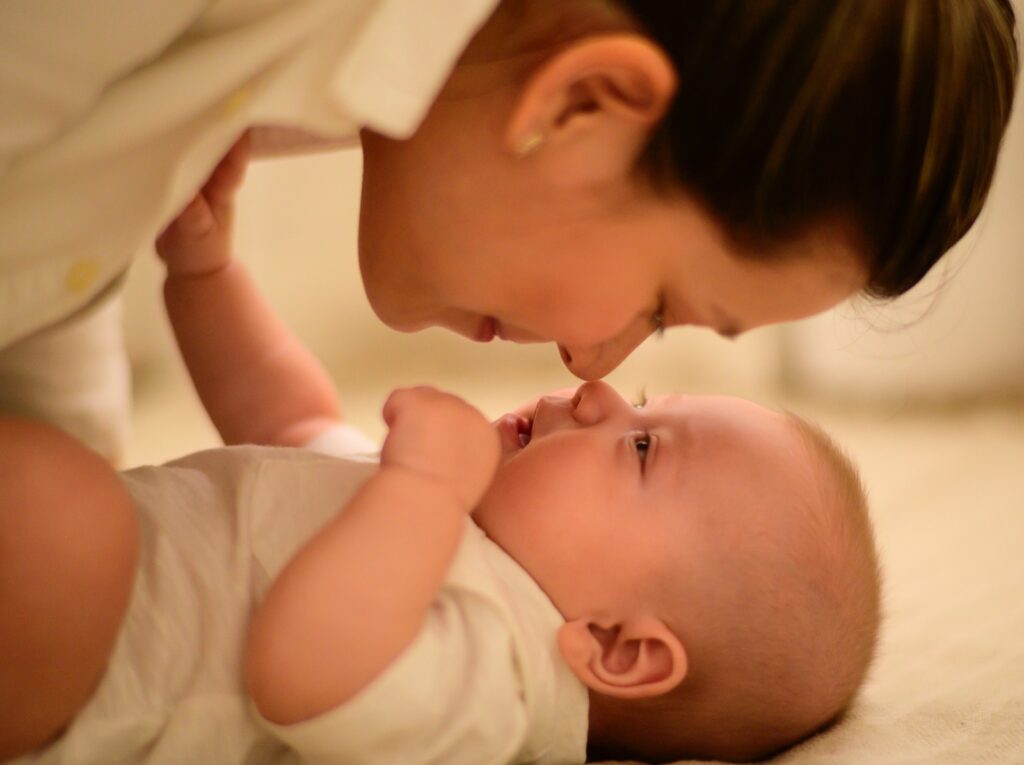Ultimate Guide to Positive Parenting: Adventure Mum’s Tips
Welcome to the ultimate guide to positive parenting, where we delve into effective techniques and strategies that will help you navigate the wonderful yet challenging journey of parenthood. In this hectic age, parents must take on a kinder and more understanding attitude towards their kids.
Traditional forms of parenting may not be sufficient to meet the emotional needs of children, leading to issues such as low self-esteem and behavioural problems. This guide provides a deep comprehension of positive parenting principles and their usage with different age groups.
From establishing boundaries and encouraging self-discipline to nurturing emotional intelligence and building resilience, this ultimate guide covers every aspect necessary for raising confident, responsible individuals who are well-equipped to face life’s challenges head-on. Furthermore, our tailored advice on attachment parenting for babies, dealing with meltdowns in pre-schoolers and school-aged kids, as well as positively navigating through those difficult teenage years will provide invaluable insights into tackling specific developmental stages.
Embark on this transformative journey towards mastering positive parenting skills that not only benefit your child but also create a harmonious family environment built on trust, respect and love.
Table of Contents:
- Understanding Positive Parenting
- Why Traditional Parenting is Outdated
- Establishing Boundaries
- Encouraging Self-Discipline
- Building Resilience
- Building Resilience
- Babies and Attachment Parenting
- Positive Parenting Tips for Your Toddler
- Dealing with Meltdowns: Tips for Parents of Pre-school and School Aged Kids
- Positively Parenting Difficult T(w)eens
- FAQs in Relation to Ultimate Guide to Positive Parenting
- Conclusion
Understanding Positive Parenting
Nurturing a strong parent-child bond, encouraging mutual respect and open communication are the foundations of positive parenting.
A Shift from Authoritarian Methods
In the past, many parents relied on authoritarian methods, such as strict rules and harsh punishments for misbehaviour, but research has shown that these approaches can lead to increased aggression in children and damage their self-esteem.
The Benefits of Positive Parenting
- By fostering empathy and engaging in open dialogue, parents can cultivate a closer connection with their children.
- Improved Behaviour: Children raised with positive discipline are more likely to develop good habits without needing constant reminders or threats of punishment.
- Growth Mindset: Encouraging effort rather than just results helps kids develop resilience and perseverance when faced with challenges.
So, if you want to raise happy, confident, and well-adjusted kids, consider giving positive parenting a try.
Why Traditional Parenting is Outdated
Traditional parenting relies on punishment and control, leading to power struggles and damaged relationships.
- Rigid and Inflexible: Traditional parenting is inflexible, making it difficult to adapt to individual child needs or situations.
- Poor Communication: Authoritarian styles hinder open communication, leading to misunderstandings or unaddressed emotional issues.
- Neglecting Emotional Development: Focusing solely on obedience overlooks the importance of nurturing a child’s emotional intelligence.
Positive parenting techniques foster mutual respect and promote healthy growth and development.

Establishing Boundaries
Setting boundaries is crucial for positive parenting and fosters a sense of security.
Achieving Balance
Strike the right balance by communicating expectations clearly, offering choices within limits, and involving your child in decision-making.
Consistency Is Key
- Maintain consistency with established boundaries.
- Ensure both parents are on the same page.
- Address rule-breaking calmly, focusing on teaching rather than punishing.
These strategies will help you set healthy boundaries for your children while fostering mutual respect and understanding. Recognize the necessity of limits for your offspring’s growth and prosperity.
Encouraging Self-Discipline
Teaching self-discipline is crucial for responsible kids, so here are some strategies:
- Model self-discipline: Demonstrate good habits like punctuality, organization, and emotional control.
- Create routines: Establish daily routines for tasks like homework or bedtime to teach structure and consistency.
- Praise effort over results: Encourage perseverance by praising your child’s efforts, not just the outcome.
- Talk about consequences: Help your child understand that every choice has consequences, both positive and negative.
For more advice on successful parenting, take a look at these ideas.
Building Resilience
Help your kids develop the capability to recover from difficulties for their future success.
- Encourage problem-solving: Let your child find their own solutions to problems to develop critical thinking and independence.
- Foster a growth mindset: Teach your kids that it’s okay to make mistakes and learn from them, praising their hard work over perfection.
- Nurture connections: Strong relationships are key to building resilience, so encourage social interactions and help your child maintain friendships.
By incorporating these strategies into your parenting approach, you’ll raise happier, more confident kids ready to take on any adventure life throws their way.
Building Resilience
Help your kids become more resilient by fostering independence and problem-solving skills.
- Nurture their interests: Encourage your child to explore their passions, boosting their confidence and self-esteem. [source]
- Promote problem-solving: Guide your child through finding answers on their own, teaching them how to tackle obstacles independently. [source]
- Celebrate effort over outcome: Praise your child’s hard work rather than just focusing on results, helping them understand that setbacks are part of learning and growth. [source]
By incorporating these strategies into everyday interactions, you can make a significant difference in preparing your child for an adventurous life full of ups and downs.

Babies and Attachment Parenting
Attachment parenting is the ultimate bonding experience between parents and their babies, promoting trust and security in the parent-child relationship.
- Discover attachment parenting principles for a positive parenting experience.
- Understand the importance of secure attachment for healthy development.
- Explore the benefits of attachment parenting for your baby.
To practice attachment parenting:
- Respond promptly to your baby’s cries or signs of distress, because they need you.
- Promote physical closeness through cuddling, babywearing, or co-sleeping (if appropriate), because they crave your touch.
- Feed on demand, whether breastfeeding or bottle feeding, allowing them to set the pace, because they know when they’re hungry.
- Provide consistent love and support as they explore their world, because they need to feel safe.
This nurturing approach will help lay a solid foundation for positive relationships throughout childhood and beyond. Examine Psychology Today for further details concerning the potential risks of “crying it out.”
Positive Parenting Tips for Your Toddler
Parenting a toddler can be an arduous undertaking, yet positive parenting techniques may make it more gratifying and simpler.
- Communicate expectations: Use clear language to explain what you want your child to do.
- Praise good behavior: Encourage your child when they do something right.
- Avoid harsh punishments: Instead of yelling or time-outs, use gentle discipline methods.
- Create routines: Establish daily routines to help your child feel secure.
Establishing a close relationship and encouraging psychological wellbeing can be achieved by applying these tactics.
Dealing with Meltdowns: Tips for Parents of Pre-school and School Aged Kids
Meltdowns are a common occurrence for kids, but positive parenting can help you manage these challenging situations.
First, remain calm during a meltdown, as your child looks to you for guidance.
- Identify triggers: Recognize what causes your child’s meltdowns to address the root of the problem or avoid them altogether.
- Acknowledge feelings: Validate their emotions and encourage them to express themselves in healthier ways.
- Distract and redirect: Gently divert their attention towards something more positive or engaging.
Incorporating these strategies into your daily routine will reduce meltdowns and teach your child valuable coping skills they’ll carry into adulthood.
For additional ideas on controlling outbursts and cultivating emotional intelligence in young kids, have a look at the NSPCC’s handy guide.
Positively Parenting Difficult T(w)eens
Parenting teenagers can be tough, but with positive parenting techniques, you can help your teen navigate these years successfully.
- Communicate openly: Create a safe space for your teen to share their thoughts and feelings.
- Promote self-esteem: Boost your teen’s confidence by acknowledging their efforts and achievements.
- Negotiate boundaries: Work together to establish fair rules that give your teen a sense of autonomy.
For additional support, check out credible sources like the Family Lives website, which offers tailored advice for parents of UK teenagers.
FAQs in Relation to Ultimate Guide to Positive Parenting
What are the 5 principles of positive parenting?
The five principles of positive parenting include creating a safe, engaging environment; fostering a strong parent-child connection; using assertive discipline with clear expectations and consequences; promoting realistic expectations for children’s behaviour and development; and taking care of oneself as a parent.
What are the 3 F’s of positive parenting?
The three F’s of positive parenting refer to being Firm, Fair, and Friendly.
What is the most positive parenting style?
Authoritative parenting is considered the most effective style in terms of promoting healthy child development.
What is the positive parenting theory?
Positive Parenting Theory focuses on developing strong relationships between parents and their children by emphasizing mutual respect, open communication channels, and cooperation.
Conclusion
Positive Parenting: The Ultimate Guide
Positive parenting is all about creating a nurturing and supportive environment for your kids, with boundaries, self-discipline, emotional intelligence, and resilience.
Forget traditional parenting methods that can lead to negative outcomes, and follow this guide to learn how to positively parent your baby with attachment techniques, manage toddler behavior, deal with pre-school and school-aged meltdowns, and positively parent even the most difficult T(w)eens.
Remember, being a good parent takes time, patience, and practice, but the rewards are immeasurable.







